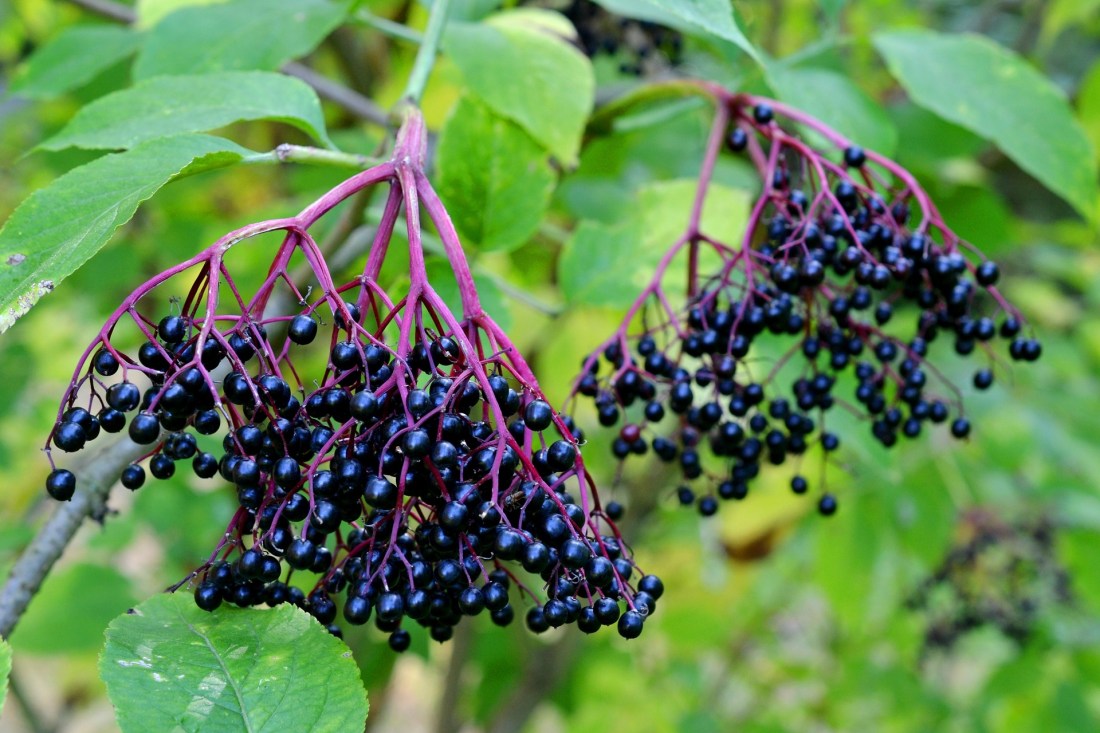Perennial crops, conservation grazing, and whole-farm plans
Dani Dircks is a licensed general contractor, mother of four, and healthy-living advocate with an entrepreneurial spirit. “Two years ago when my oldest child was in kindergarten, he missed three days of school because he was sick,” Dircks explains. “I had three younger children at home already and I wondered ‘Is this the way it will always be?’” After searching for advice, Dircks became curious about elderberry syrup. Native American and European herbalists have used berries from the elderberry tree as a natural medicine for hundreds of years, and many people believe the syrup can relieve colds, fight the flu, and boost the immune system. “Initially, I was skeptical,” she says. “But I went out and bought ingredients to try making some at home. If I was going to be giving it to my kids, I knew it had to be something they would love.”
Though Dircks didn’t set out to start a new business, friends soon began asking her to make extra syrup for them as well. Eventually, she began bottling and producing elderberry syrup in large quantities to sell at farmer’s markets and fairs around the metro area, as well as through Etsy and Facebook. Today, her still-growing business – Sailor Mercy – employs 11 women and is a 7-days a week venture for Dircks. “There is a huge market out there for elderberry syrup,” she says, “and it continues to get bigger.”
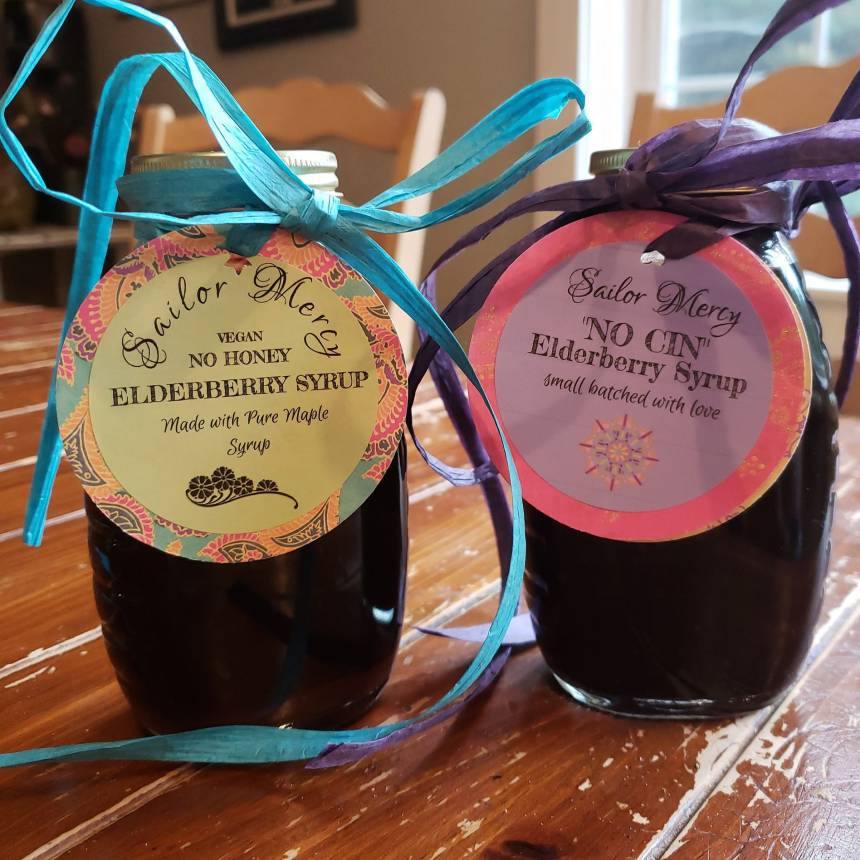
On Tuesday, Oct. 22, 6-8pm, the Washington Conservation District will host a workshop at Scandia Community Center for local farmers interested in exploring new options for their land. Instructors will talk about perennial crops, such as elderberry and hazelnuts, as well as conservation grazing and whole-farm plans. The event will be the first in a three-part series for rural landowners.
“I wish that there were local growers,” says Dircks. “Last year, I was driving hours to get elderberries and spending more than $30 a pound. I would love to see more people growing it locally.”
Pete Widin, founder of Artisan Environments LLC, sees opportunities for local landowners to make money growing perennial crops as well. Widin, who is one of the speakers at the Oct. 22 workshop, works with property owners to find tangible solutions to problems such as erosion, poor drainage, and how to make an income from marginal lands. “Elderberry is a fairly low-maintenance crop,” he says, “and it is easy to pair elderberries with small-livestock or chickens as well.” During the workshop, Widin will talk about how to create “diversified orchards” where large amounts of fruit can be grown together on relatively small plots of land in an ecologically and health conscious way that also provides habitat for wildlife. Other perennial trees and shrubs that can be grown for food production include chokecherries, currants, gooseberries, serviceberries, and hazelnuts.
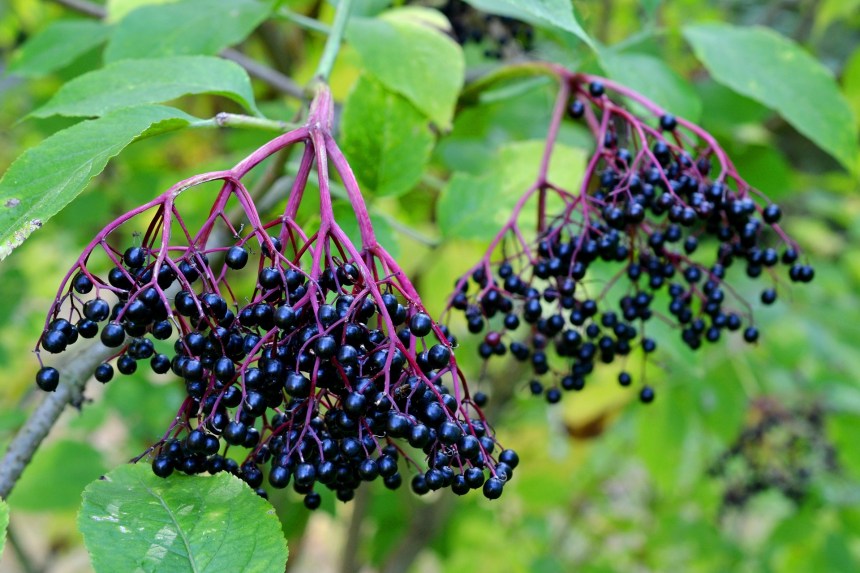
The Oct. 22 workshop will also feature information about conservation grazing. Kent Solberg, a livestock and grazing specialist with the Sustainable Farming Association, has raised dairy and beef cattle, hogs, and chickens on his homestead in Wing River Township, Wadena County since 2003. Solberg notes that, “low commodity prices and the fiscal struggles of many producers could be one of the greatest motivations for change.” As producers begin looking for alternatives to corn and soybeans, many are considering grass-based livestock systems or growing hay for sale. During the workshop, Solberg will give an overview of pasture management and conservation grazing, talk about soil health, and provide advice on how to integrate livestock into a crop-based farm.
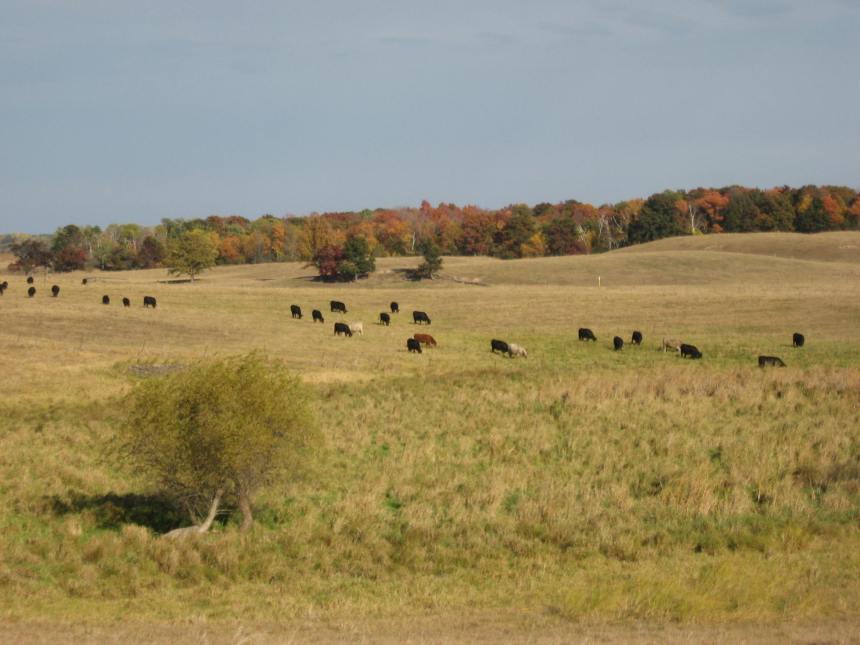
Along with the presentations from Widin and Solberg, there will also be information about how to tap into resources available through the Washington Conservation District, Natural Resources Conservation Service (NRCS), and other local partners. One example are the whole-farm conservation plans that many local landowners have begun to develop. Mary Jo Youngbauer, a conservation planner for the Lower St. Croix area, has been meeting with rural land owners across Washington, Anoka, Chisago, Pine and Isanti Counties to discuss issues such as erosion and soil health. So far this year, she has met with 81 landowners and developed 55 whole-farm conservation plans. As part of the planning process, Youngbauer also helps landowners to connect with potential sources of funding for cover crops, habitat plantings, and other conservation practices. The plans are voluntary, free, and no-obligation.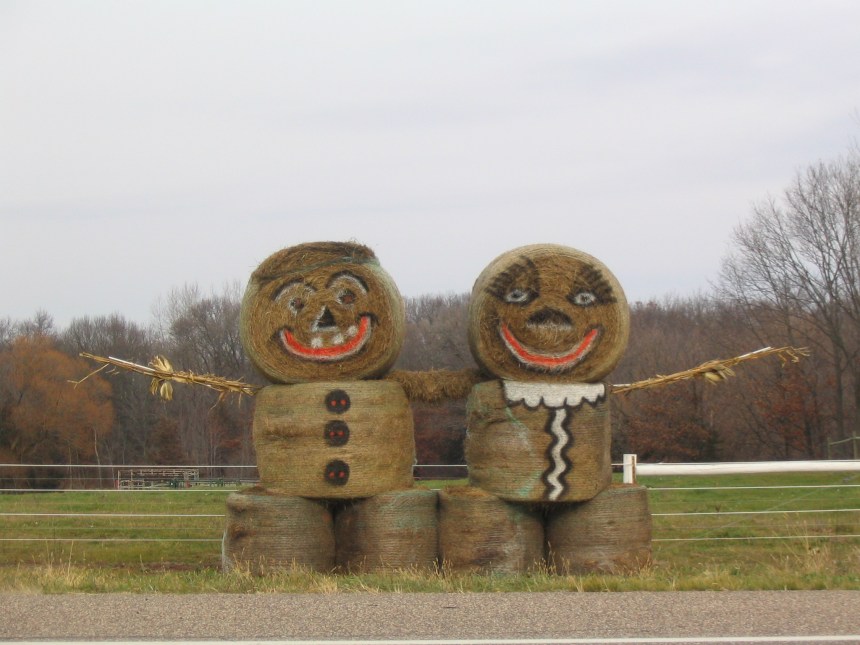
Exploring New Options will be held at Scandia Community Center on Tuesday, Oct. 22, 6-8pm. Register online at tinyurl.com/2019farming or by calling 651-330-8220 x.35. The workshop is free.
Washington Conservation District will also host workshops about large-scale land restoration, oriental bittersweet management, and estate planning this fall. Learn more about all four workshops at www.mnwcd.org.
